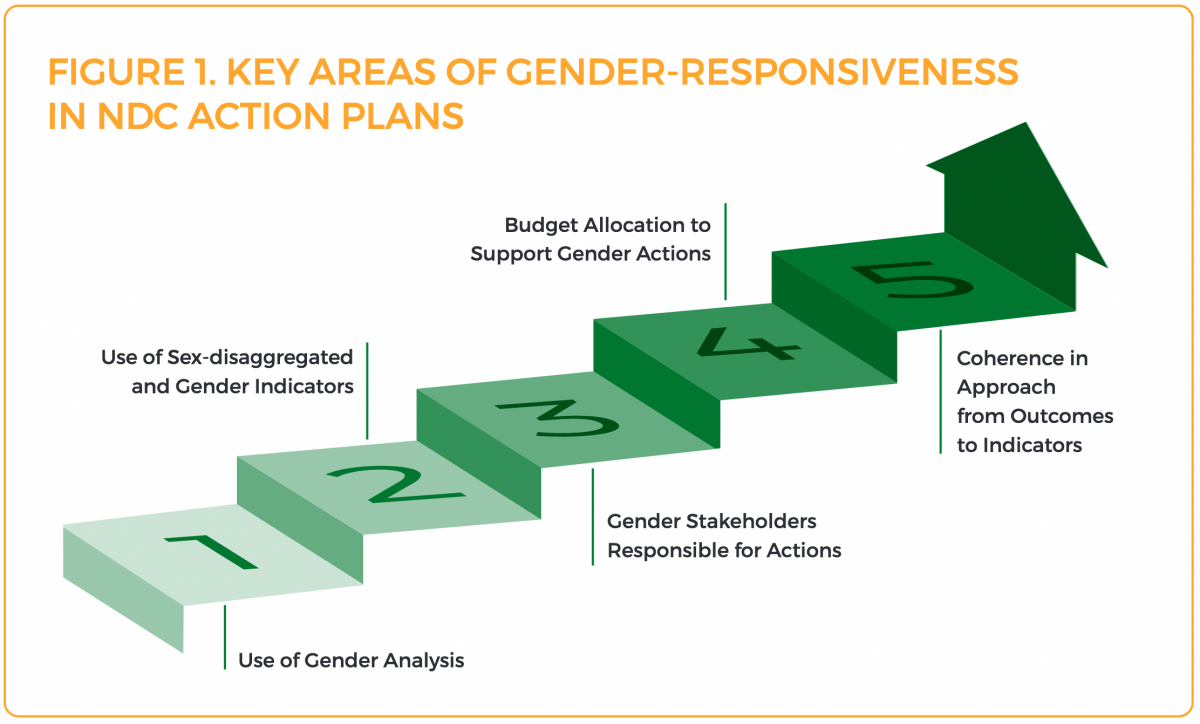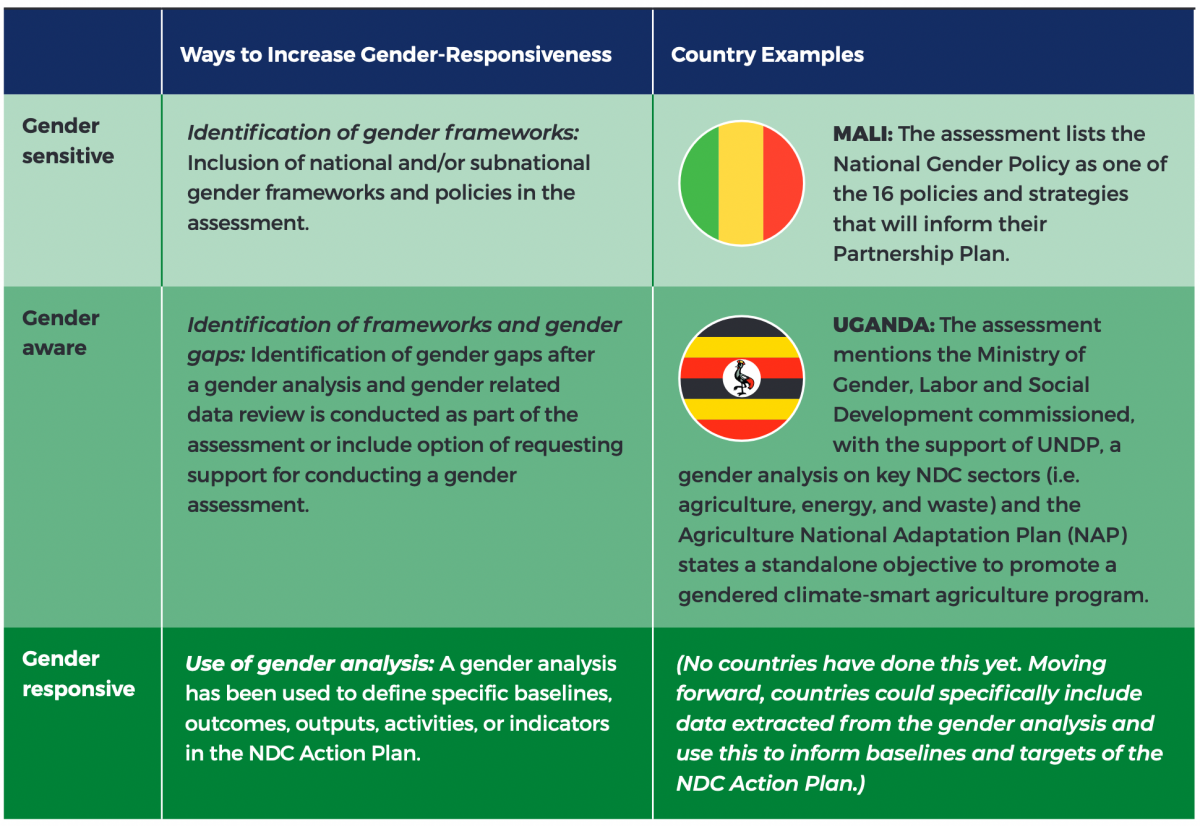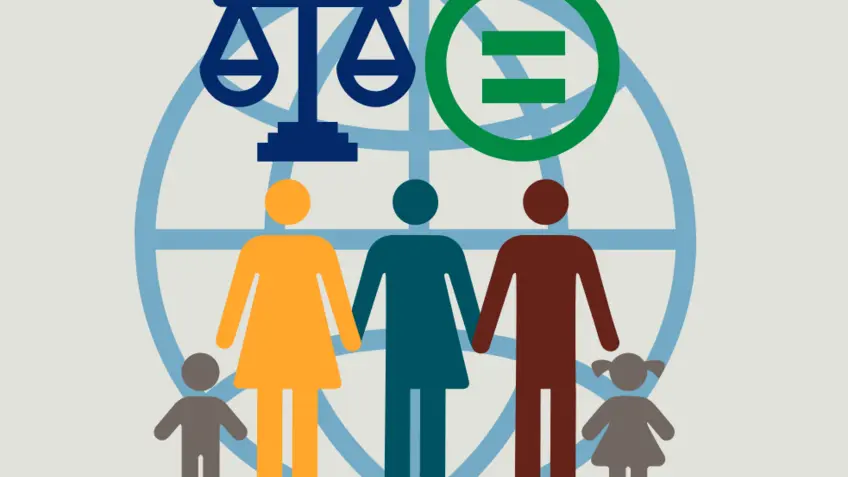Developing Gender-Responsive NDC Action Plans: A Practical Guide for Policy Makers and Practitioners
As part of the mission to promote gender parity—one of its ten guiding principles—the NDC Partnership adopted a Gender Strategy in 2019 to advance gender equality considerations in member countries’ Nationally Determined Contributions (NDCs) and climate action. Following the steps undertaken to support the Partnership’s country engagement process, this strategy identifies entry points countries can use to mainstream gender equality into NDC action plans, including Partnership Plans, Implementation Plans, or Investment Plans. The strategy’s guidance was further integrated into the NDC Partnership Work Program for 2021-2025.
Further, the Paris Agreement’s rulebook calls for NDC planning and review processes to be gender responsive. This means the second generation of NDCs is expected to be more specific about integrating gender equality in climate action implementation in their text. It also means that future review cycles need to increase gender equality ambition integration into climate actions, moving towards gender-responsive on the ground implementation. This shift is supported through the UNFCCC’s Enhanced Lima Work Programme on Gender and its Action Plan mandates.
A gender-responsive climate action plan must identify gender gaps and contribute to remediating historical biases. The NDC Partnership Support Unit is therefore pleased to launch its Practical Guide on Developing Gender-Responsive NDC Action Plans, which outlines how gender responsivity can be achieved.
Designed primarily for government representatives, in-country facilitators and advisors, and Support Unit staff, the guide offers five steps to steer efforts towards enhancing gender equality considerations and to exemplify how gender tools and methodologies can be used to develop gender responsive NDC action plans. These areas represent key elements required to secure identification of gender relevant data, including gender gaps, and the possibility to engage with national gender agencies and gender stakeholders who can support identification of sector-specific activities that contribute to achieving climate, development, and gender equality goals. The areas proposed ensure actions and progress can be tracked using gender indicators and that these actions are provided with financial support that secures their implementation. The excerpt from the guide below outlines the five steps.

For each of the key areas of intervention, the guide shows how gender tools and methodologies can be used throughout the country engagement process. It includes explicit guidance on how to do so and includes examples of good practices from member countries. These examples have been extracted from government-validated Partnership Plans to show real-world illustrations of how gender can be addressed in different stages and products of the Partnership’s country engagement process.
The example below, taken directly from the guide, explicitly defines ways to strengthen a gender analysis (the first step) in NDC action plan development, and country examples which fit into each definition.

The guide concludes with sector-specific considerations, which may provide useful suggestions for countries’ key climate sectors, and complementing supporting resources to inspire further thinking around the development of country and context-specific gender-responsive strategies and actions.
The practical guide was developed in collaboration with the International Union for Conservation of Nature (IUCN) to strengthen the coordination of the Gender Strategy implementation.
This guide will enable member countries and practitioners to better identify and mobilize opportunities to address gender equality in NDC Action Plans.
The guide is available in English.
This blog was developed by Ana Victoria Rojas, Jackeline Siles, Cate Owren and Laura Cooper Hall of the International Union for Conservation of Nature (IUCN) with contributions from Ralien Bekkers, Lisa Bow, Dena Kleemeier, and Amanda Morelli of the NDC Partnership Support Unit.
